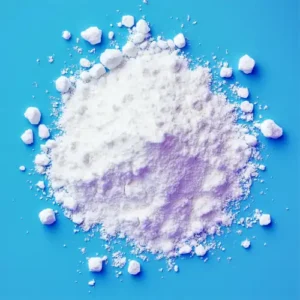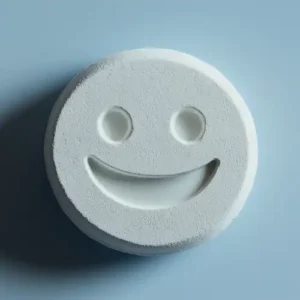Random drug testing is becoming more commonplace in British businesses. Employers are well within their rights to drug test staff if they have grounds to suspect substance abuse.
A positive drug test result at work is a serious matter. The good news for you though is that, even if you fail a drugs test at work, this may not result in you being sacked on the spot.
Your Rights As An Employee
Random drug testing is becoming more commonplace in British businesses. Employers are well within their rights to drug test staff if they have grounds to suspect substance abuse.
A positive drug test result at work is a serious matter. The good news for you though is that, even if you fail a drugs test at work, this may not result in you being sacked on the spot.
The law says that employers can make it mandatory for staff to undergo drugs testing at work if they suspect they are taking illegal substances. However they are required to have the employee’s consent before such screening can be carried out.
Businesses who want to drug test their employees are required to have a formal drugs testing policy in place beforehand. This policy must be clearly communicated to all members of staff. You should expect to see this in your contract or staff handbook.
The company drugs policy should state why the drug screening is taking place and the potential consequences facing an employee if they fail a drug test.
Understanding the full legal framework around workplace testing is crucial for both employers and employees. For a more detailed examination of your rights and employer obligations, see our guide on the legality of drug testing in the workplace.
For How Long Drugs Stay in Your Body?
Employers use three types of drug test to screen workers for drugs: urine drug tests, saliva drug tests and hair drug tests.
If you take a drug test at work, you may be asked to give a sample of urine which will then be screened for drugs of abuse. Most drugs are flushed out of the body in days and will not be picked up by a urine drug test after a week or so.
Drugs such as Cocaine and MDMA can be picked up for up to five days by a urine drug test. Cannabis can be detected for longer periods, in some instance up to 30 days after last use.
A saliva drug test is commonly used by employers now as it can determine if an employee is under the influence of drugs at the time of testing. The window of detection with a saliva drug test is much shorter than that of a urine test. 1 to 2 days is normally the longest detection period for a saliva test, for some substances it can be just a few hours.
Another growing trend is for employers to take a sample of your hair for drug testing. Although less common than urine or saliva drug testing, hair drug testing will pick up most substances, including alcohol, for up to 90 days.
Why You Could Be Tested
There are multiple reasons why you may be subjected to a drug test. One such reason is if your behaviour or performance at work has notably changed. If you have been displaying signs of impairment, such as speaking with difficulty, wavering movements, or frequently being absent or late, your employer might opt to conduct a drug test in order to guarantee workplace safety and productivity.
For employers wondering if an employee might be struggling with substance abuse, our article on recognising signs of employee substance abuse provides valuable guidance on identifying warning signs and appropriate intervention strategies.
In addition to this, if your job entails operating heavy machinery, handling dangerous materials, or dealing with sensitive information, it is likely that your employer has implemented a rigorous drug testing policy as a way to reduce the chances of accidents occurring, prevent injuries, and avoid potential security breaches. Random testing is most commonly seen in environments where staff are in critical roles such as vehicle drivers, or people working in the personal care system such as nurses.
Certain industries maintain particularly strict testing protocols due to safety concerns. The construction industry, for example, has specific regulations regarding drug testing due to the high-risk nature of the work. Learn more about drug testing in UK construction and the relevant laws.
Commercial drivers face even more stringent requirements, with specialised testing protocols and legal frameworks. For information specific to commercial driving positions, see our guide on HGV drivers drug testing laws and rules.
Furthermore, some employers utilise drug tests as part of their employment screening procedure. The purpose of this is to make sure that potential hires do not have any issues regarding substance abuse that could impede their work performance or pose any safety risks for themselves and others.
In addition, the implementation of random testing can act as a deterrent. Employers hope to discourage substance abuse in the workplace by establishing a program that randomly selects employees for drug tests. The fear of being chosen arbitrarily may motivate workers to abstain from drug usage or seek assistance if they are struggling with addiction.
It is also important to acknowledge that drug testing policies and procedures vary between organisations. While some employers opt for urine testing, others may employ saliva, blood, or hair samples. Additionally, the frequency and methods of testing can differ based on company policies and job requirements.
The rise of drug testing isn’t limited to traditional industrial or transportation sectors. Professional services environments are increasingly implementing testing policies as well. Our case study on alcohol and drug testing in professional workplaces examines how firms like Lloyd’s of London have implemented comprehensive substance policies.
Regardless of the reason behind conducting testing, it is crucial to approach this procedure in a professional and understanding manner. The purpose of drug testing is not to intrude upon an employee’s privacy; rather, its aim is to establish a safe and healthy work environment for everyone involved. If you happen to be selected for testing, it becomes imperative that you willingly conform to the process and carefully observe any guidelines outlined by your employer.
Ultimately, drug testing acts as a valuable instrument aimed at fostering a workplace free from drug influence while ensuring the safety of employees and upholding the organisation’s integrity. By adhering to these policies and actively supporting a culture that rejects drugs, employees significantly contribute towards cultivating an environment of productivity and prosperity.
Many organisations are discovering multiple benefits from implementing workplace drug testing programmes. From improved safety to reduced absenteeism and healthcare costs, you can explore the 10 key benefits of workplace drug testing in our comprehensive guide.
Before taking disciplinary action, Employers will be under a duty to investigate the circumstances fully.
If the company investigation shows that a clear rule existed and that a fair process was followed, a worker can expect disciplinary action, including dismissal if a drug test is positive.
Different companies have different policies but generally you will find that being under the influence of drugs, whilst working, constitutes gross misconduct and you will be fired.
In some cases, if it is proved that an employee has a substance abuse problem, the employer may decide that sending them to a specialist for help and assistance is a preferable option.
Drug and alcohol dependence are recognised medical problems. A person that is misusing drugs or alcohol has exactly the same rights to confidential support as they would if they had any other medical or psychological condition.
Employers need to consider if drug and alcohol misuse in the workplace is treated as a disciplinary matter or a health concern. If an employer dismisses someone for drug or alcohol misuse without trying to help them, an employment tribunal may decide that they have been dismissed unfairly.
Rehabilitation and Return-to-Work Programs
Many forward-thinking companies now offer rehabilitation and return-to-work programs for employees who fail drug tests. These programs recognise that addiction is a complex issue, often requiring professional help. Here’s how they typically work:
- The employee enters a treatment program, which may include counselling and medical support.
- The company provides a leave of absence, allowing the employee to focus on recovery.
- Regular check-ins and progress reports keep both parties informed.
- Upon successful completion, the employee returns to work under certain conditions:
- Frequent follow-up drug tests
- Ongoing counselling or support group attendance
- A probationary period with close supervision
These programs benefit both the employee and the company. They give valuable workers a second chance while promoting a supportive workplace culture. However, they’re not suitable for all situations, especially in safety-critical roles or cases of repeated offences.
If you’re an employer who suspects staff members might be using drugs, our guide on how to handle suspected workplace drug use provides practical advice on next steps, including testing procedures and appropriate management approaches.
For a comprehensive overview of workplace drug testing in the UK, including implementation guidelines and best practices for employers, visit our workplace drug testing guide.
Photo by Anthony Cunningham for Zoom Testing
This post first appeared in 2019. It was last updated in February 2025.
Zoom Testing is a leading UK drug testing company and a supplier of Drug Test Kits.





